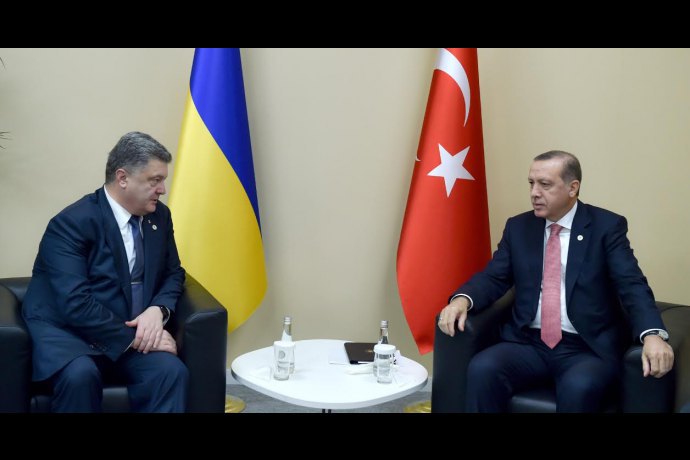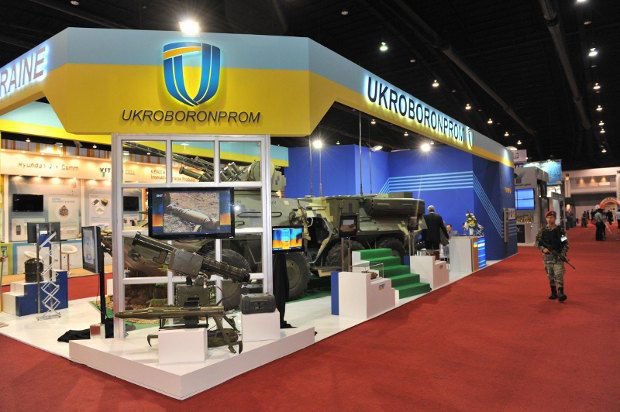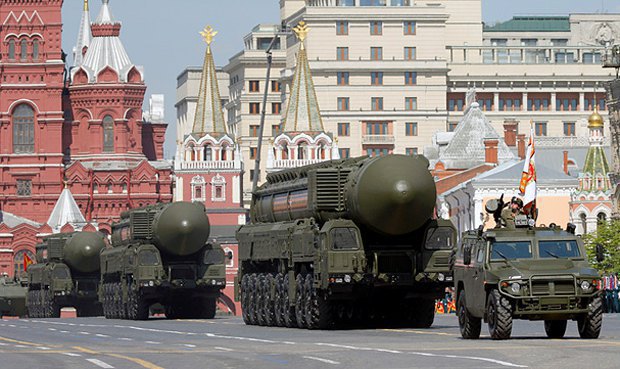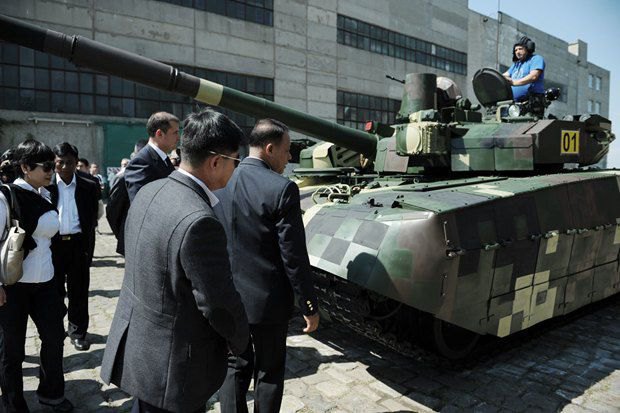
Russia lost, Ukraine gained
As you know, the secretary of the National Security and Defence Council (NSDC) of Ukraine, Oleksandr Turchynov met Turkey's Undersecretary for Defence Industries Ismail Demir in late April.
They discussed cooperation between the leading enterprises of the defence industries of Ukraine and Turkey, and a number of joint projects in this area. The two sides demonstrated confident optimism.
Thus, according to Demir, Turkey is interested in joint work: "We appreciate cooperation with Ukraine and are interested in a significant expansion of mutually beneficial cooperation." "We see that our countries can ensure the implementation of many large-scale projects that will facilitate greater synergy and strengthen their defence capabilities," he stressed.
The parties stated that joint Ukrainian-Turkish projects which are already running have achieved significant results, contributing to the strengthening of the defence capability of the two countries.
Demir invited Turchynov to attend the 13th International Defence Exhibition "IDEF-2017" in Istanbul on 9-12 May. Ukraine's state-run arms concern Ukroboronprom is planned to present its promising projects there.
It should be noted that the defence industries of Ukraine and Turkey are building cooperation against the background of instability in Turkey's relations with Russia. Alternating periods of feud and friendship between Ankara and Moscow, of course, cannot but affect the defence industry.

Even Russian experts admit that the history of Russian-Turkish military and technical cooperation does not give grounds for optimism. Ahead of Turkish President Recep Tayyip Erdogan's visit to Russia, Lenta.ru spoke with the director of the Centre for Analysis of Strategies and Technologies, Ruslan Pukhov, a co-editor of the recently published book "The Turkish military machine: strength and weakness". The article was given a deliberately tough title, "Turkey must pay for S-400 in full". "Generally speaking, taking into account Turkey's ambitions in the defence industry, joint projects seem most promising. However, this would naturally require appropriate political conditions, which are absent today because of high volatility in bilateral relations," the pro-government expert concluded.
Terrorism sponsor accuses Ukraine of arming gangs
In the meantime, while they are no "appropriate political conditions" for the Russians, they continue to act as usual, that is to discredit Ukraine at the international level. This always happens on the eve of such important exhibitions as "IDEF-2017".
This time, little-known websites and bloggers are spreading a report that parts of the 9K111 Fagot and 9K113 Konkurs anti-tank missile systems were intercepted in Turkey as they were being smuggled from Ukraine to Iran. Obviously, the cargo was intended for terrorists, in particular the Kurdish Democratic Union Party. There is no substance in these reports but they create information noise, which we will discuss below.
All of these and previous attacks showed that the Russian Federation, despite suffering dramatic consequences of the severed military and technical cooperation with Ukraine, will continue to systematically try and discredit Kyiv on international arms markets. While doing this, the Russians will actively continue to use the tried and tested issues of arms supplies and mercenaries from Ukraine in military conflict zones in Syria, Libya and Yemen, which have been hackneyed by the Russian media since the Arab Spring.
Since the moment Vladimir Putin came to power, the creation of terrorist organizations and support for separatist groups around the world have become one of the main attributes of the Kremlin expansion. This includes both funding and arms supply.
As the issues of illegal shipments from Russia are supervised by the special services, each supply is prepared in a very elaborate and professional manner, all the schemes are intricate and cunning and involve a large number of transit countries and companies. Thus, apart from completing terrorist tasks, they also settle the issues of political destabilization of countries and discrediting competitors.
Ukraine, a natural target of misinformation
There is nothing surprising in the fact that the Kremlin picked Ukraine for the role of the competitor.
First, it was the main rival of Russia in the arms market and the Kremlin financially benefits from its failures.
Second, Ukraine had a special seaport for handling weapons therefore almost 100 per cent of Russian military cargo shipped by the sea went through it, which greatly simplified the task of encrypting and, in the case of a "failure", shifting the blame and slinging mud.
Third, efforts to pull Ukraine into permanent scandals involving illegal arms supplies did not contribute to its rapprochement with the USA and the EU, forcing the Ukrainian leadership to drift towards Russia.
Fourth, arms scandals around Ukraine inspired by Russia turned international attention from Russia's illegal arms supplies to countries under restrictions and sanctions.

In the meantime, Russia has significantly increased arms supplies to Syria and Iran (apart from aircraft and armoured vehicles, it supplies serious types of weapons like the S-300 anti-aircraft missile system). Since there is no need to carry them illegally through third countries, Moscow is now providing its military transport aircraft for the transfer of weapons from Iran to Syria.
However, the issue of illegal shipments is not closed, it just changed the route - Russia supplies weapons to the PKK (Kurdistan Workers Party) for subversion and destabilization activities in Turkey, as well as to Hezbollah in the Middle East.
Business as usual
Ukraine has great potential in defence industry, remaining one of the biggest arms exporters in the world. Over the past few years, Kyiv has managed to strengthen its position in this area successfully competing for markets with Moscow among others.
Ukraine's win of a Thai contract over Russia generated a lot of reaction. The Kharkiv-based Malyshev plant is already implementing the contract with Bangkok, which foresees the sale of modern Oplot tanks to Thailand.

So Russian IT professionals had to roll up their sleeves and come up with new stories. However this collection of stories has been rather long already. Here is the "list" of scandals related to the alleged illegal sale of Ukrainian weapons to various countries (including those that are subject to sanctions or restrictions): Libya (1996), Afghan Talibs (1998), African countries (1997-2000), Iraq (2002 - the notorious Kolchuga case), Georgia (2008-2009), Sudan, Armenia and Syria (2012). None of the mentioned transactions could be verified with "reliable" evidence. But every time there were attempts to make Ukraine a "scapegoat."
Read: How the world should react to Russia's terrorist-destructive efforts
Of course, Russia has never burdened itself with such a trifle as substantiating its claims. And should they, really? It is enough to just post a report somewhere saying Ukraine has sent some illegal supplies somewhere, then use it to blow a TV hysteria out of proportion and oblige any of its "Churkins" in international institutions to push with the allegations pertinently and impertinently. As a result, Kyiv constantly finds itself in an awkward situation when it is forced to justify its actions while the "accusers" are observing from the side the chaotic attempts to counteract the artfully prepared blow to the reputation.
All such allegations usually ended in nothing. But this trick remains a favourite with Russian propagandists. Then, as they say, the cloud is gone but an unpleasant aftertaste remains. This is exactly what the slenderers wanted.








